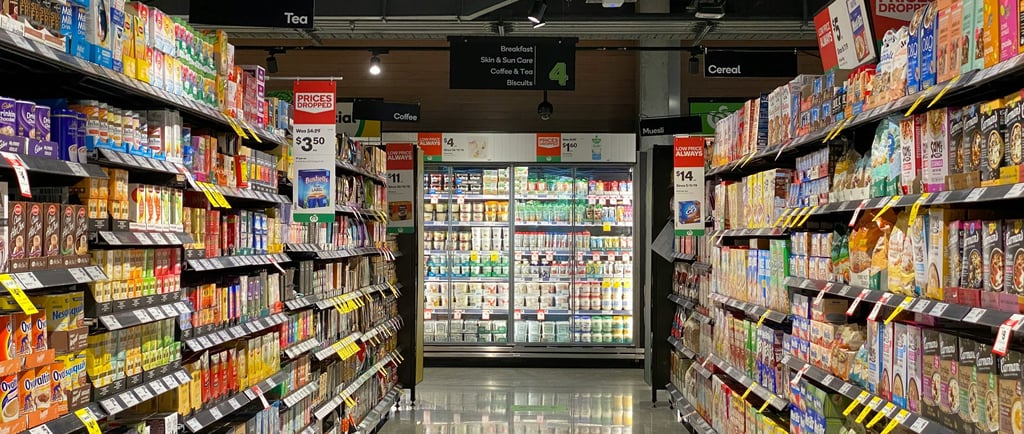The Impact of Emulsifiers on IBD
While they may seem harmless, growing research suggests that emulsifiers could worsen gut inflammation—a major concern for people with Inflammatory Bowel Disease (IBD).
IBD


The recent ADDapt trial led by researchers at King’s College London investigates whether removing emulsifiers from your diet can be an effective tool for managing IBD. While many doctors still tell their patients that diet plays no part in IBD management, they may now have to rethink their outdated advice.
The King’s College researchers observed that people with Crohn’s disease were three times more likely to see an improvement in their symptoms when they cut out emulsifiers from their diet. Participants also found that they were twice as likely to go into remission, where their disease symptoms disappeared.
What Are Emulsifiers?
Emulsifiers are additives commonly found in processed foods to improve texture, extend shelf life, and prevent ingredients from separating. You can find them in a wide variety of popular foods including bread, yogurt, ice cream, margarine, salad dressing, sauces, soups, breakfast cereals, mayonnaise, peanut butter and even vitamin supplements. Unless you’re a diligent label reader, it’s likely that you consume emulsifiers multiple times a day.
How Do Emulsifiers Affect the Gut?
Emulsifiers can alter gut bacteria (the microbiome) and weaken the gut lining, leading to:
Increased gut permeability ("leaky gut") – Emulsifiers can disrupt the protective mucus layer of the intestines, allowing harmful bacteria and toxins to reach the immune system, which may trigger inflammation.
Microbiome imbalances – Studies show that emulsifiers reduce beneficial bacteria and increase pro-inflammatory bacteria, which can worsen IBD symptoms.
Heightened immune response – An over-stimulated immune system can lead to a flare.
Which Emulsifiers Should I Avoid?
Research suggests that some emulsifiers are more problematic than others. The most commonly studied include:
1) Carboxymethylcellulose (CMC or E466)
A synthetic thickener and stabiliser used in processed foods like ice cream, hot chocolate powders, processed cheeses, sauces, baked goods, sauces, and some gluten-free products.
Why it’s bad for IBD:
Disrupts the gut microbiome by reducing beneficial bacteria.
Increases gut permeability ("leaky gut"), allowing bacteria and toxins to trigger inflammation.
Promotes colitis-like symptoms in animal studies.
A 2021 study found that CMC altered gut bacteria and increased inflammation in healthy individuals, suggesting it could be even more harmful for people with IBD.
2) Polysorbate-80 (P80)
A common emulsifier in processed foods like salad dressings, ice cream, margarine, and some dietary supplements.
Why it’s bad for IBD:
Encourages pro-inflammatory gut bacteria, which can worsen IBD symptoms.
Disrupts the intestinal mucus barrier, making the gut more vulnerable to inflammation.
Increases bacterial translocation, meaning harmful bacteria can enter the bloodstream more easily.
A 2015 study found that mice given P80 developed gut inflammation, metabolic changes, and bacterial imbalances similar to those seen in IBD patients.
3) Carrageenan
A natural emulsifier derived from red seaweed, found in dairy products (especially low fat), dairy-free milk alternatives, processed meats, ice creams, and some protein shakes.
Why it’s bad for IBD:
Triggers immune system activation, leading to gut inflammation.
May promote oxidative stress and gut barrier damage.
4) Xanthan Gum & Guar Gum
Used as thickeners and stabilizers in gluten-free products, sauces, and dressings.
Why it’s bad for IBD:
Can cause bloating, gas, and diarrhea in sensitive individuals.
May alter gut bacteria balance when consumed in large amounts.
Less harmful than CMC and P80, but still worth monitoring in people with gut sensitivity.
5) Sodium Stearoyl Lactylate (E481) and Diacetyl Tartaric Acid Esters of Mono- and Diglycerides (DATEM, E472e)
Synthetic emulsifiers used in bread, baked goods, and margarine to improve texture.
Why they're bad for IBD:
May alter gut bacteria composition.
Potentially linked to increased gut permeability.
Often found in ultra-processed foods, which are already linked to higher IBD risk.
What Can I Do?
If you or your child has IBD, consider reducing emulsifiers in your diet to see if it helps manage symptoms. Here’s how:
Read labels carefully – Avoid foods with CMC, polysorbate-80, carrageenan, and other artificial emulsifiers. The Yuka app can help you to identify the additives and suggests alternatives. For most products, there will be an additive-free alternative on the same shelf.
Choose whole, unprocessed foods – Stick to home-cooked meals, fresh produce, lean proteins, and whole grains.
Opt for cleaner alternatives – Choose unsweetened nut milks without carrageenan, homemade dressings, and minimally processed foods.
Lobby for better quality food. If your favourite food contains ingredients that damage your gut health, contact the manufacturer and let them know that you want food without artificial additives.
While more human studies are needed, there’s enough evidence to suggest that emulsifiers negatively impact gut health, especially in individuals with IBD. If you’re experiencing flare-ups or digestive issues, reducing emulsifiers could be a helpful dietary strategy alongside a well-balanced, anti-inflammatory diet.


